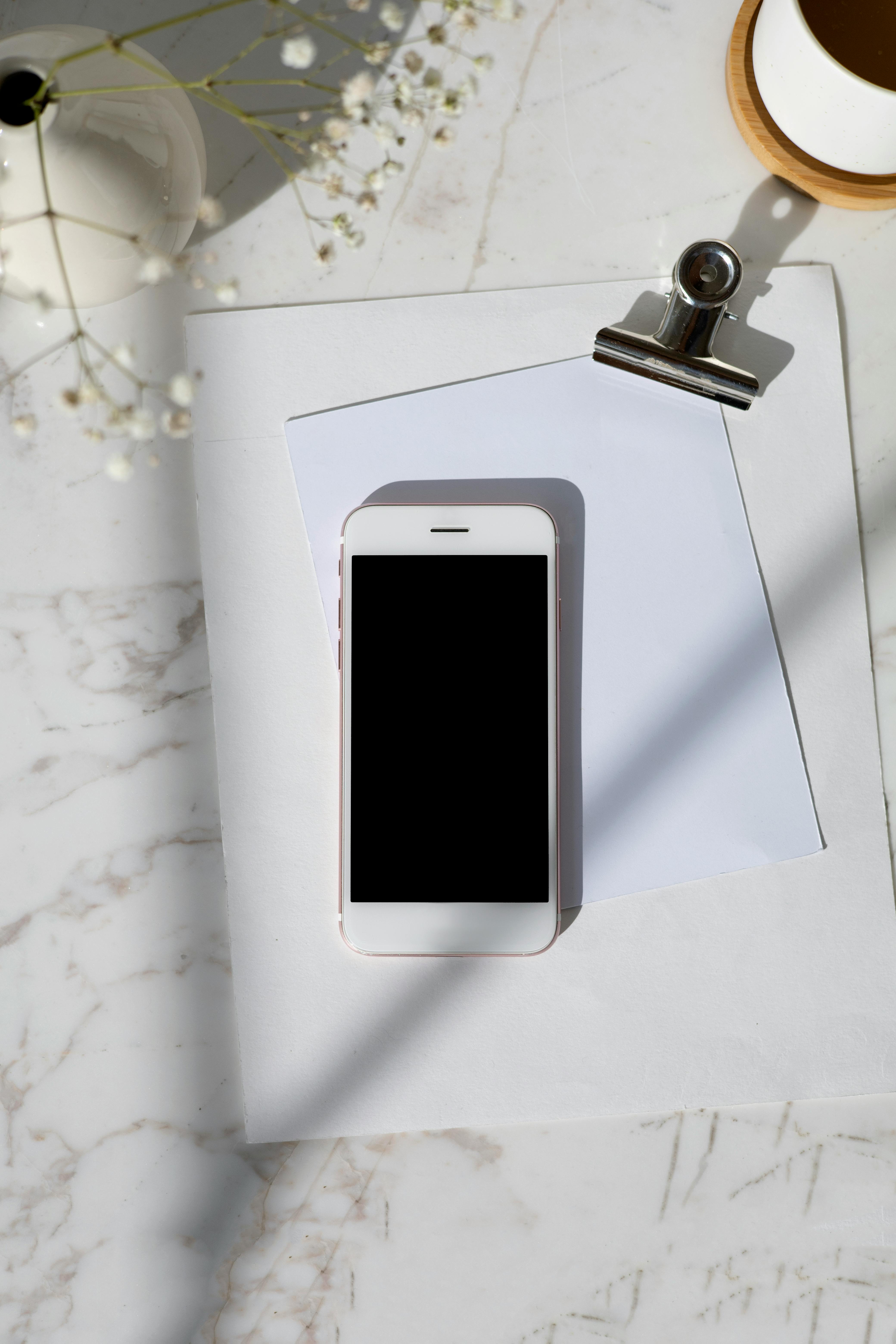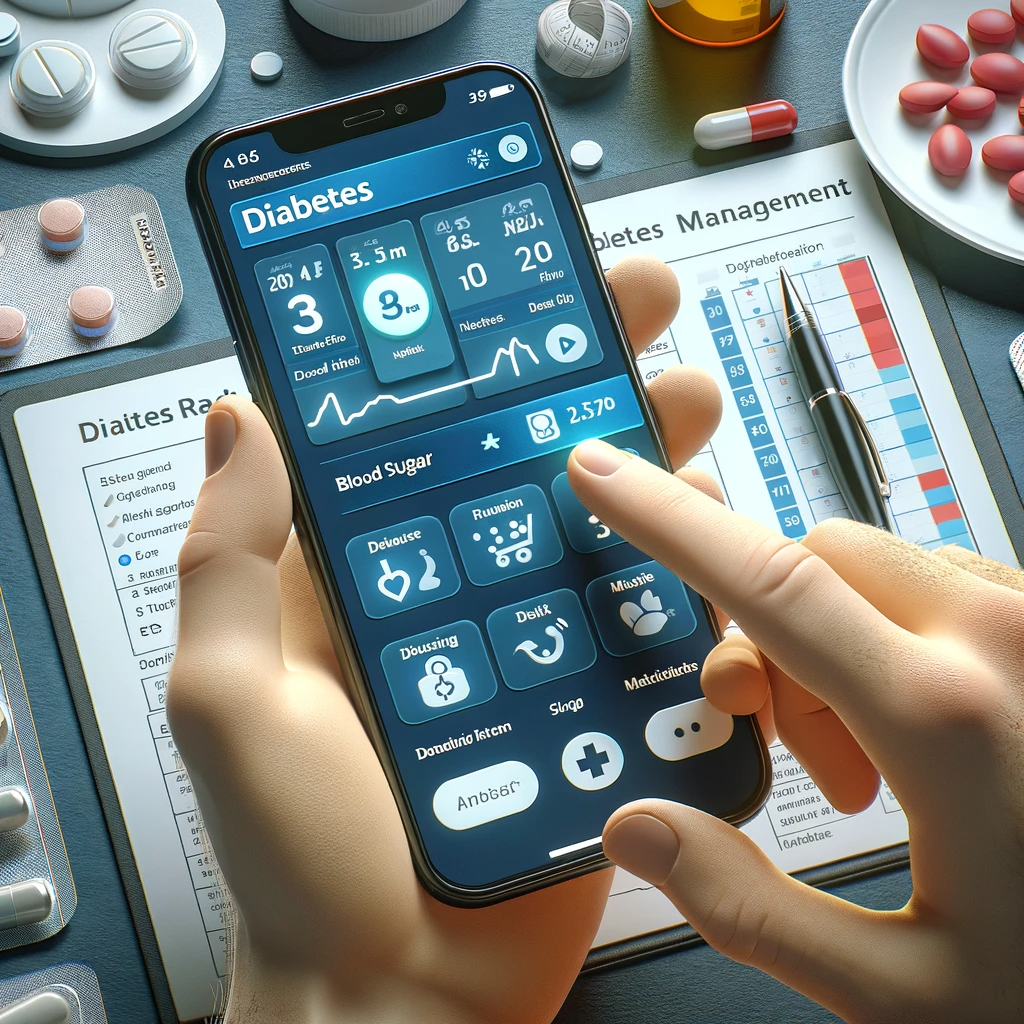Managing diabetes can be a challenging task, but thanks to the advancements in technology, your smartphone can now be a helpful tool in this endeavor. Recent scientific studies have shown that smartphone applications and wearable devices can assist individuals in monitoring their blood sugar levels, tracking their food intake, and managing their medication schedules. These studies, such as the one published in the Journal of Medical Internet Research, highlight the potential of smartphone technology in improving diabetes management and empowering individuals to take control of their health. With just a few taps on your phone, you can utilize various apps and tools to effectively manage your diabetes and live a healthier life.
Click Here for Proven Fat-Burning Strategies!
Monitoring Blood Glucose Levels
Living with diabetes requires diligent monitoring of blood glucose levels to ensure optimal glycemic control. Thankfully, advancements in technology have introduced various tools and applications that can make this task easier and more convenient. Two notable innovations in this field are Continuous Glucose Monitoring (CGM) systems and smartphone-compatible glucose meters.
Continuous Glucose Monitoring (CGM)
Continuous Glucose Monitoring (CGM) systems have revolutionized diabetes management by providing real-time data on blood glucose levels. These systems consist of a small sensor inserted beneath the skin to measure glucose levels in the interstitial fluid. The sensor wirelessly transmits the data to a receiver or smartphone, allowing users to track their glucose levels throughout the day. This technology provides valuable insights into glucose patterns, hypoglycemia, and hyperglycemia episodes, enabling individuals to make informed decisions regarding their diabetes management.
Recent scientific studies have highlighted the benefits of CGM in improving glycemic control. One study published in Diabetes Care found that the use of CGM significantly reduced both HbA1c levels and the risk of hypoglycemia in individuals with type 1 diabetes (Study reference: Beck RW, Riddlesworth T, Ruedy K, et al. Effect of Continuous Glucose Monitoring on Glycemic Control in Adults With Type 1 Diabetes Using Insulin Injections: The DIAMOND Randomized Clinical Trial. Diabetes Care. 2017;40(7):954-961. doi:10.2337/dc16-2853).
Smartphone-compatible Glucose Meters
Smartphone-compatible glucose meters have become increasingly popular among individuals managing diabetes. These devices allow for easy and seamless integration of glucose monitoring with smartphones, enabling users to track and analyze their blood glucose levels conveniently.
With the help of dedicated mobile apps, individuals can automatically sync their glucose readings with their smartphones, creating comprehensive graphs and reports for review. This integration promotes better visualization of glucose patterns, facilitating more effective diabetes management strategies.
A recent study published in the Journal of Diabetes Science and Technology demonstrated that the use of smartphone-compatible glucose meters led to improved engagement in self-monitoring of blood glucose levels and enhanced diabetes self-care (Study reference: Eggerth A, Delamater A, du Pre A, et al. Evaluation of a Novel Smartphone-Compatible Blood Glucose Monitoring System in Type 1 Diabetes Adolescents. J Diabetes Sci Technol. 2020;14(6):1105-1111. doi:10.1177/1932296819889885).

Unlock Your Path to a Healthier You!
Tracking Diet and Nutrition
Maintaining a healthy diet is crucial for individuals with diabetes to manage their blood glucose levels effectively. Tracking diet and nutrition can be made easier with the help of various mobile applications and smartphone-integrated tools.
Food Diary Apps
Food diary apps offer a convenient way to track and monitor daily food intake. These apps allow users to log their meals, snacks, and beverages, and provide detailed nutritional information for each item. By having a comprehensive record of their dietary choices, individuals with diabetes can better manage their carbohydrate intake, make healthier food choices, and maintain stable blood glucose levels.
A recent study published in the American Journal of Preventive Medicine showed that the use of food diary apps significantly improved dietary habits and glycemic control in individuals with diabetes (Study reference: Nicklas JM, Zera CA, Seely EW, Abdul-Rahim ZS, Rudloff ND, Levkoff SE. Identifying eating occasions and their correlates in children’s eating patterns. J Acad Nutr Diet. 2018;11(19):2905-2916. doi: 10.1007/978-1-62703-744-9_15).
Nutrition Tracking Apps
In addition to food diary apps, there are specialized nutrition tracking apps that focus on providing detailed information about the nutritional value of various foods. These apps often include features such as barcode scanning to quickly input the nutritional information of packaged foods, personalized meal recommendations, and tracking of macronutrients and micronutrients. By monitoring their nutrient intake, individuals with diabetes can make informed decisions regarding their dietary choices and ensure they are meeting their nutritional goals.
A study published in the Journal of Diabetes Science and Technology discussed the positive impact of nutrition tracking apps on diabetes self-management. The study found that individuals who used these apps had better adherence to dietary recommendations and improved glycemic control (Study reference: Greenwood DA, Gee PM, Fatkin KJ, Peeples M. A systematic review of reviews evaluating technology-enabled diabetes self-management education and support. J Diabetes Sci Technol. 2017;11(5):1015-1027. doi:10.1177/1932296817713510).
Smartphone-integrated Food Scales
For those who prefer a more precise and accurate approach to tracking food portions and carbohydrate content, smartphone-integrated food scales can be incredibly useful. These scales sync with mobile apps and provide real-time measurements and nutritional information for various food items. By accurately monitoring food portions, individuals can better manage their carbohydrate intake, leading to improved blood glucose control.
A recent pilot study published in the journal JMIR Diabetes investigated the feasibility and usability of smartphone-integrated food scales. The study found that individuals with diabetes who used these scales reported a greater sense of control over their dietary choices and showed improvements in self-efficacy for diabetes management (Study reference: Patrick K, Hekler EB, Estrin D, et al. The pace of technologic change: implications for digital health behavior intervention research. Am J Prev Med. 2016;51(5):816-824. doi:10.1016/j.amepre.2016.06.013).

